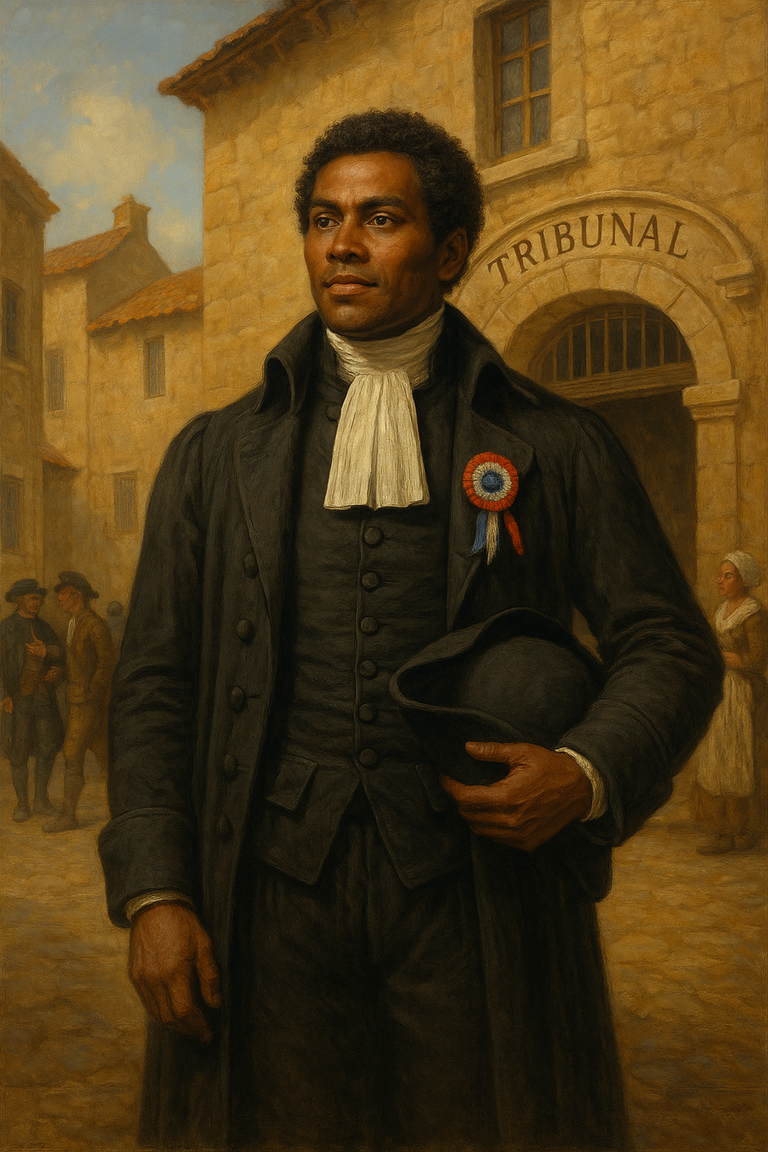Born in the fire of Saint-Domingue and executed by guillotine during the height of the Terror, Louis Guizot became France’s first Black mayor in 1790. In a Republic still under construction, he embodied the ideal of open citizenship—long before official history forgot him. Here is the exemplary fate of a free man, one who must absolutely be rediscovered.
From Saint-Domingue to Saint-Geniès: The broken destiny of Louis Guizot
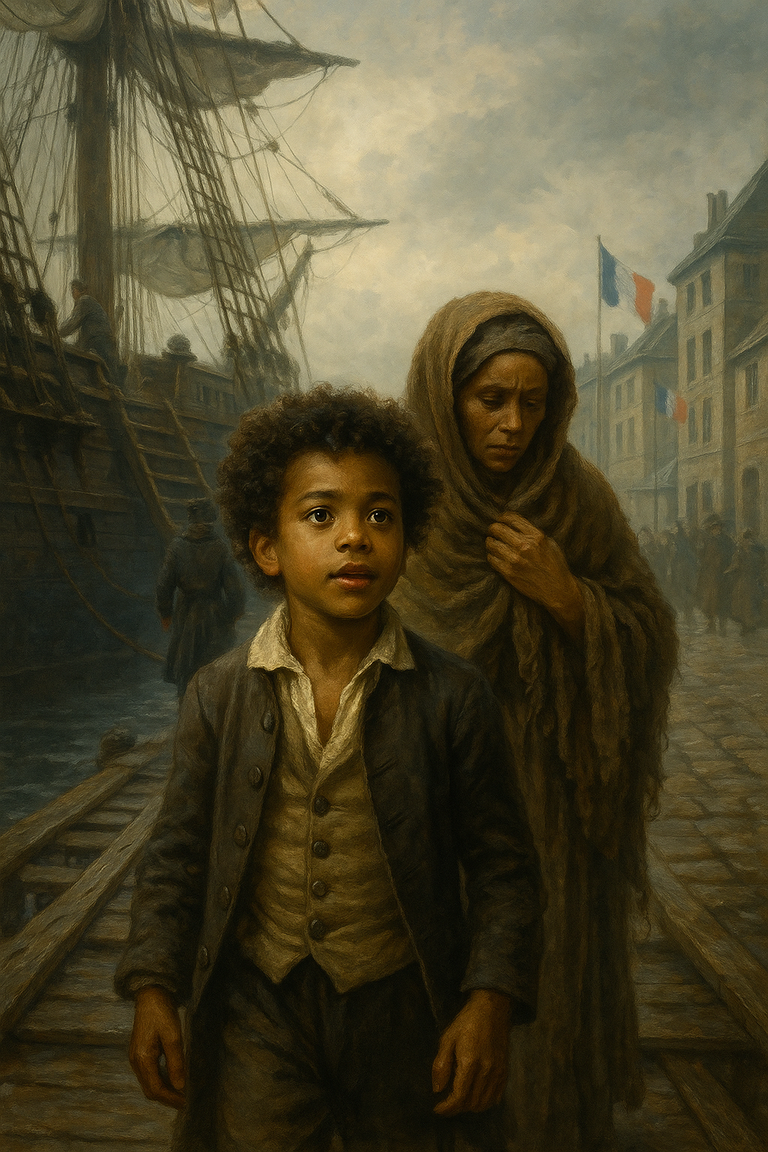
Born in 1740 in the humid heat of Saint-Domingue, Louis Guizot (baptized at birth as Louis Ferrier) embodied from the very start a rupture: that of a colonial world which fathered mixed-race children without always recognizing them. His father, Paul Guizot, a Huguenot colonist settled on the island since 1726, fell in love with an Afro-Caribbean enslaved woman, Catherine Rideau. By the time Catherine gave birth, Paul had already returned to France. Two years later, he brought mother and child to the mainland. Catherine, overwhelmed by the climate, went back to Saint-Domingue. Louis remained, raised alone by his father. This initial uprooting marked the beginning of an extraordinary path.
Settled in Languedoc, Louis Ferrier first learned the trade of silk stocking weaving in Lédignan, then turned to legal studies. He became a viguier (a minor but prestigious judicial position) for the Duke of Uzès. In 1760, in a France still bound by the harsh rules of the Code Noir, he married Marie Boisson, a woman from a local bourgeois family. Together, they had six children.
His legal recognition as Paul Guizot’s son in 1763 was a silent revolution. After much familial and judicial hesitation, he was granted the right to bear the name “Guizot”, thus sealing his integration into local society. Three years later, he received Catholic baptism—a decisive turning point in his journey of assimilation..
On the eve of the French Revolution, Louis Guizot had become a respected public figure. In 1789, he played a key role in drafting the cahier de doléances (list of grievances) for the town of Saint-Geniès-de-Malgoirès, where he advocated for strikingly modern causes: freedom of the press, religious tolerance, and tax justice.
His commitment went beyond the pen: he participated in the general assembly of the three Estates in Nîmes, established himself as captain-general of the local Republican Guard, and then became the leader of the Gardonnenque Federation, bringing together 50 companies and 12,000 men.
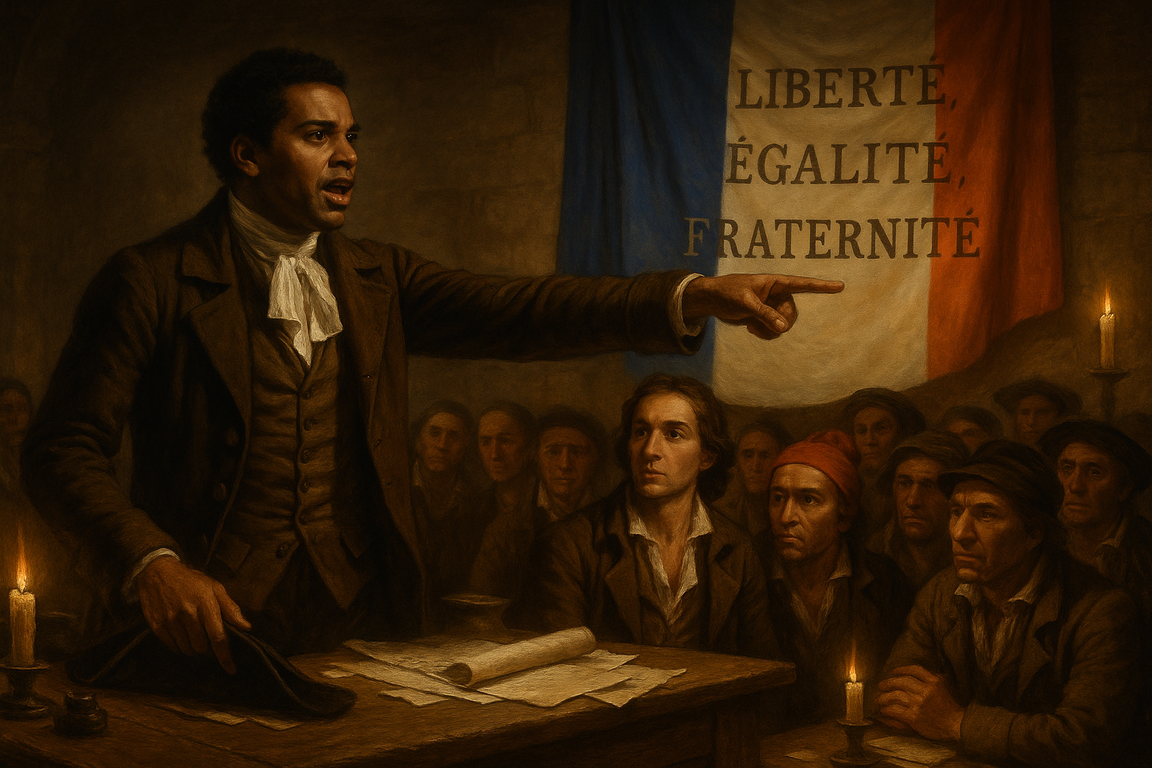
On February 7, 1790, Louis Guizot was elected mayor of his commune with 167 votes out of 176, handily defeating the outgoing consul. Thus, he became the first Black mayor of France. This victory was far from anecdotal: it showed that the early Revolution had the potential to be a crucible for truly inclusive citizenship.
True to the Girondin ideal, Louis Guizot championed a federal model of the Republic. In 1793, he was appointed justice of the peace for the canton of Saint-Geniès. But in a France now ruled by fear and suspicion, such positions became dangerous liabilities.
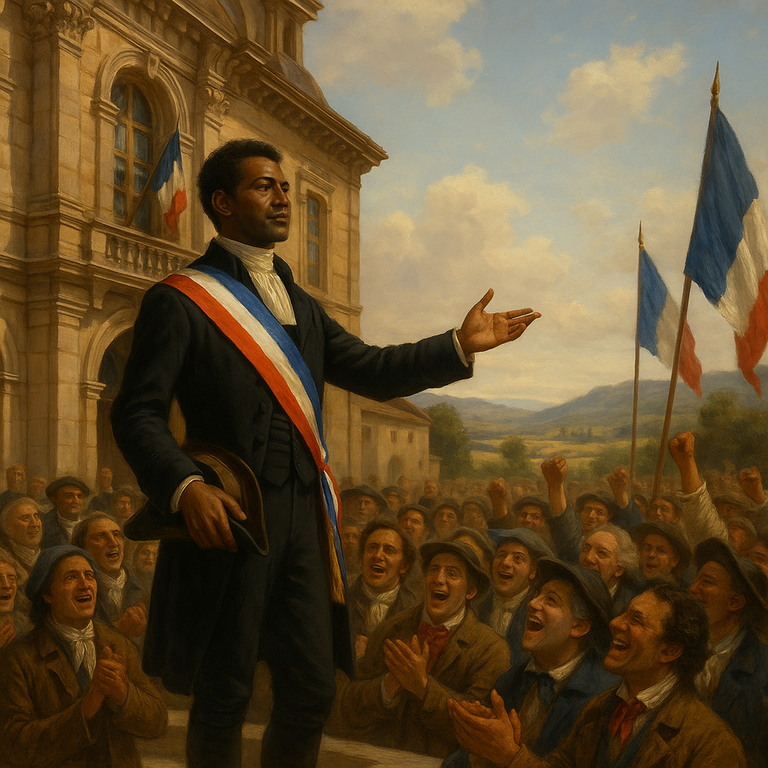
The Terror swept across the country. Jean Borie, a Montagnard représentant en mission, hunted down moderates. According to oral tradition, Louis Guizot hid in an attic. But he was soon arrested and imprisoned in the citadel of Nîmes. During three days of trial, citizens of Saint-Geniès—renamed “Montesquielle” by the Revolution—testified in his defense. It was in vain. He was sentenced to death.
On July 3, 1794, Louis Guizot was guillotined—a victim of a Revolution he had served with loyalty and intelligence. He died standing tall, as he had lived: a free man.
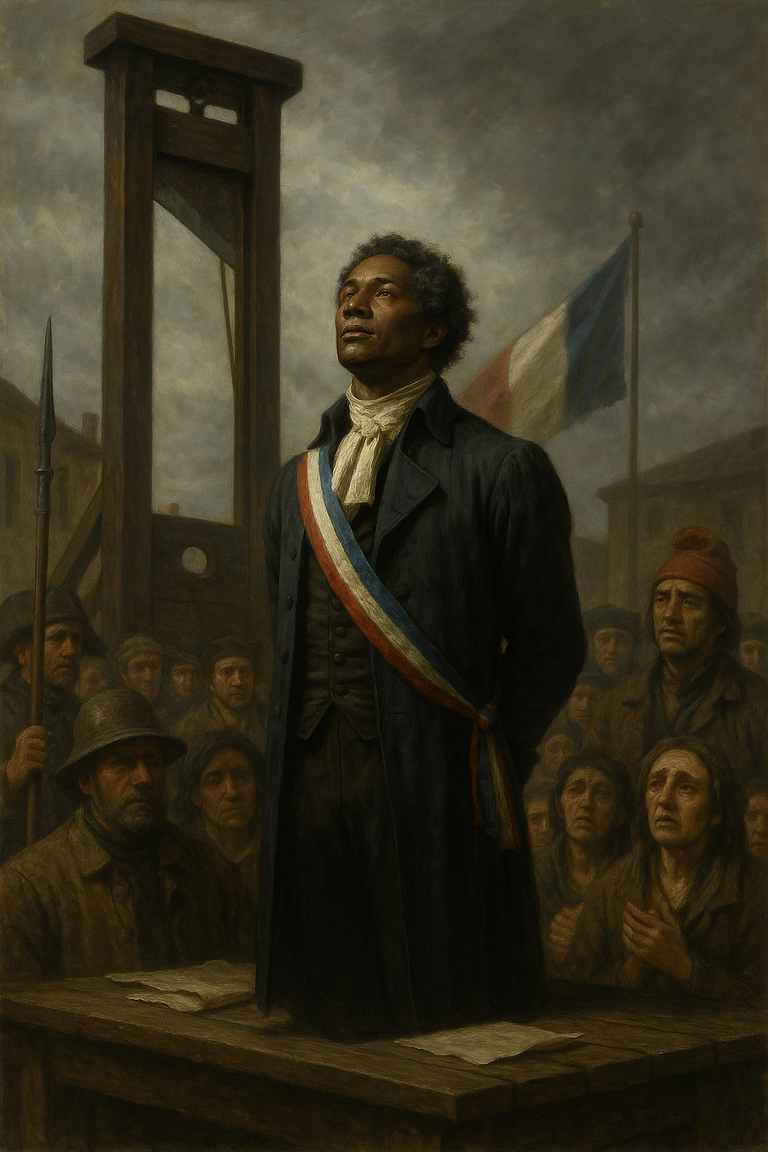
Louis Guizot left behind a family. His son, also named Louis, would go on to become justice of the peace in Saint-Chaptes. But history too quickly forgot the father’s fate. His name vanished from textbooks, monuments, and the official narratives of the Republic.
It was not until 1929 that another Black man, Raphaël Élizé, became mayor of a French town—Sablé-sur-Sarthe. Nearly 140 years later.
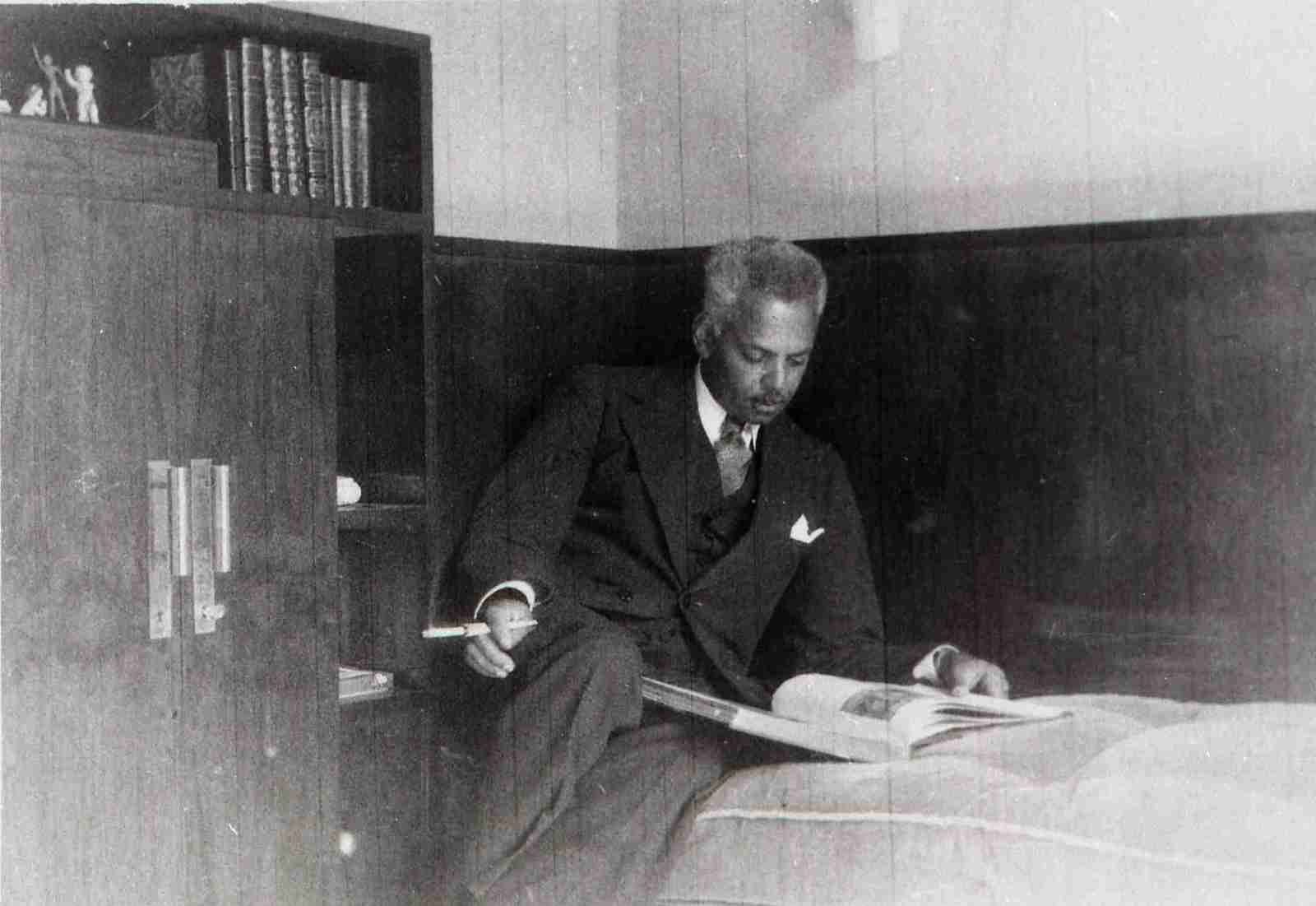
Today, only a preschool in Saint-Geniès-de-Malgoirès bears the name of Louis Guizot. A meager tribute, considering the symbolic weight of his legacy. He was not merely an Afro-descendant pioneer in a white France: he was also the embodiment of a demanding Republican ideal, in which skin color neither invalidated competence nor merit.
In a France striving to rebuild its collective memory, the rediscovery of Louis Guizot is urgent. It is a call to revisit the margins of national history, to recognize those who helped build the Republic—sometimes at the cost of their lives—out of sight of the famous names.
Louis Guizot was a man of law, a man of peace, a man of action. He was Black, and that, in 18th-century France, was an absolute singularity. But more than anything else, he was an exemplary citizen, a figure of commitment and loyalty to public service.
The story of Louis Guizot deserves to be passed on, told, and taught. For through him, an entirely different history of France emerges—one shaped by resistance, intelligence, and dignity. A story that Nofi is committed to no longer leaving in the shadows.
Sources
- Henri Hugues, De Louis Guizot à Barack Obama (Mémoires de l’Académie de Nîmes, 2010)
- Wikipédia « Louis Guizot » (consulté en avril 2025)
- Roger Little, Un maire noir sous la Révolution (Africultures, 2005)

